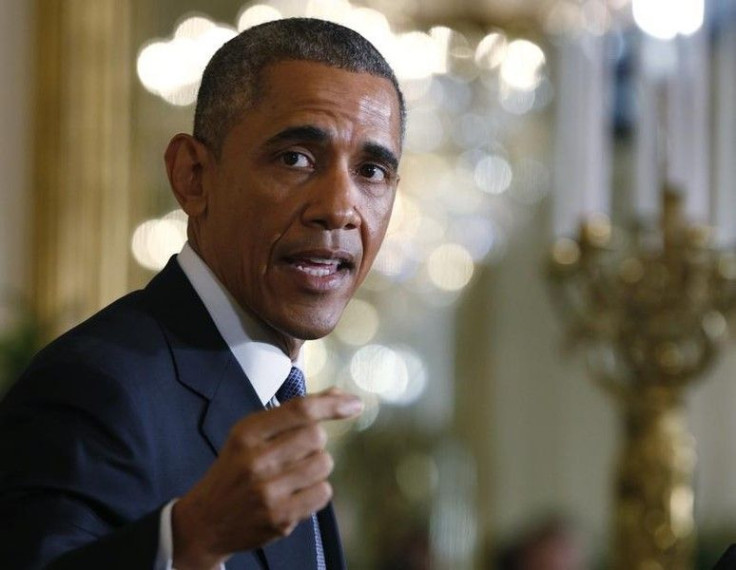State Of The Union: Obama To Propose Closing Capital Gains Loophole, Tax On Large Financial Firms

Update, Saturday, 10 p.m. EST: ABC quoted a senior White House official as estimating the proposed loophole closures and tax on financial institutions could raise $320 billion to fund the middle class breaks.
Original Article Appears Below
President Obama will propose raising taxes on the wealthiest Americans and making the tax code simpler and fairer in his State of the Union Address by closing loopholes that benefit the wealthy, the White House said Saturday. "Rather than make it easier for middle-class families to make ends meet, our tax system has changed over time in ways that make it easier for the wealthy to avoid paying their fair share," the White House said in a fact sheet.
The White House noted tax rates on the wealthy remain historically low, especially the tax rate on capital gains. That "explains how the highest-income 400 taxpayers in 2012 -- who obtained 68 percent of their income from capital gains -- paid income tax at an effective rate of 17 percent even though the top marginal income tax rate was 35 percent," the fact sheet said.
The president will propose closing the trust fund loophole that will eliminate the "stepped-up" basis that lets the wealthy pass on appreciated assets to their heirs tax-free, raise capital gains and dividend rates to the Reagan-era level (28 percent) and reform financial sector taxation by imposing a fee on large, highly leveraged financial institutions to discourage excessive borrowing.
Obama said the proposals will help pay for breaks for the middle class.
To help the not-so-wealthy, Obama will propose a $500 second-earner tax credit to help 24 million families where both spouses work; give a tax cut of as much as $3,000 per child to cover child-care costs; simplify, consolidate and expand education tax benefits to make college more affordable, and make it easier for Americans to save for retirement automatically.
The White House said closing the stepped-up basis loophole would affect the top 1 percent of taxpayers almost exclusively. "Wealthy people would still get a preferential rate on their income from investments, but they would no longer be able to accumulate extra wealth by paying no capital gains tax whatsoever," the fact sheet said, noting most middle-class retirees spend down their assets during retirement, meaning they pay capital gains as they go along, while the wealthy often hold onto their assets until death, avoiding payment of any taxes.
"The proposal would sharply reduce" the incentive to hold on to assets for generations, opening the way for investment elsewhere, the fact sheet said. The proposal protects the middle class by requiring no taxes to be paid until the death of the second spouse and capital gains of as much as $200,000 per couple could be bequeathed tax free. The White House said it expects only a tiny minority of small businesses to be affected by the proposal, which also provides that no tax would be due on inherited, small, family-owned and operated businesses unless they are sold.
The tax on financial firms would affect companies with assets exceeding $50 billion, leading them to make decisions more consistent with the economic effects of their decisions to reduce the probability of major defaults. The White House noted the proposal is consistent with the excise tax on large financial firms suggested by Rep. Dave Camp, R-Mich., chairman of the House Ways and Means Committee.
© Copyright IBTimes 2024. All rights reserved.












